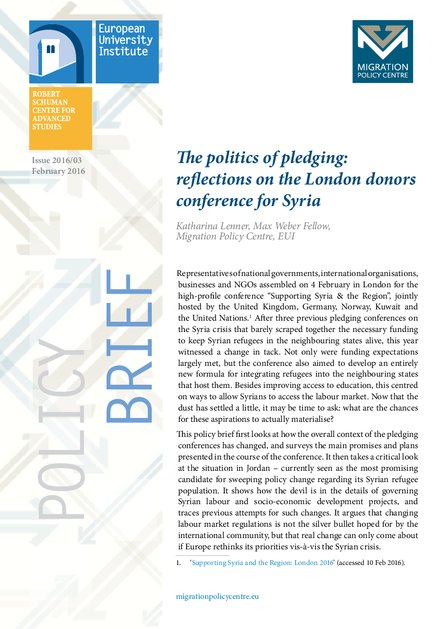
Representatives of national governments, international organisations, businesses and NGOs assembled on 4 February in London for the high-profile conference "Supporting Syria & the Region", jointly hosted by the United Kingdom, Germany, Norway, Kuwait and the United Nations. After three previous pledging conferences on the Syria crisis that barely scraped together the necessary funding to keep Syrian refugees in the neighbouring states alive, this year witnessed a change in tack. Not only were funding expectations largely met, but the conference also aimed to develop an entirely new formula for integrating refugees into the neighbouring states that host them. Besides improving access to education, this centred on ways to allow Syrians to access the labour market. Now that the dust has settled a little, it may be time to ask: what are the chances for these aspirations to actually materialise? This policy brief first looks at how the overall context of the pledging conferences has changed, and surveys the main promises and plans presented in the course of the conference. It then takes a critical look at the situation in Jordan - currently seen as the most promising candidate for sweeping policy change regarding its Syrian refugee population. It shows how the devil is in the details of governing Syrian labour and socio-economic development projects, and traces previous attempts for such changes. It argues that changing labour market regulations is not the silver bullet hoped for by the international community, but that real change can only come about if Europe rethinks its priorities vis-à-vis the Syrian crisis.